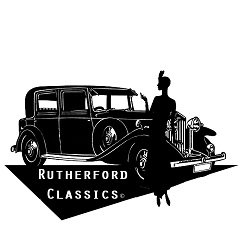Appropriate to the season, a friend gave me a gift certificate to Powell’s bookstore. Overjoyed, I hurried off to use it before it got lost in the midst of my move to the retirement center. Choosing a book wasn’t hard. I keep a list on my refrigerator door. So it’s not surprising I came home with 3 used books that were new to me.
The first I read was a memoir, Art and Madness by Anne Roiphe. She began her story in the 1950’s while she was a student at Smith College. She was quite frank about her purpose in seeking an education. Having doubts about her artistic talents, she was determined to marry someone of literary genius so she could live the artist’s life– a round of parties and witty conversation. Unfortunately, she found the object of her desire to be a demented egoist who, after living off her labors and treating her like a servant, did finally produce a play. Through the contacts they had made, the piece was headed for Broadway, to be directed by a man of good repute and which was to star Alfred Drake, an actor famous in the musical theater ,though the play in question was not one of these. In any case, Roiphe was delighted with the prospect of her husband’s success. After all her sacrifice and the abuse she’d endured, she was going to be rewarded. Soon she would be surrounded by literary luminaries who would admire her as the wife of a genius.
She was partly right. She did find herself in an auspicious crowd — George Plimpton, Ed Doctorow, Norman Mailer and William Styron among them, an all-male bastion who felt a woman’s place was in the kitchen or in bed and Roiphe did her best to satisfy them in both regards. In the meantime, her husband, as a new literary luminary, played philanderer to other women. Predictably, the marriage failed and so did the vaunted ambitions of the husband whose drama appeared briefly on Broadly only to be mocked as puerile and pretentious.
Set adrift from a husband who showed no interest in their only daughter, Roiphe slept her way through numerous, brief encounters in a desperate effort to find a man who would save her from penury and help raise her emotionally disturbed child. Regrettably, no champion appeared and after one too many misadventures, Roiphe concluded she must save herself and took up the pen. “I didn’t care anymore if all the writers in America were more skilled than I… I would work with whatever lay within… I had learned that writers either do or don’t write without permission or encouragement from anyone.” (Art and Madness by Anne Roiphe, Anchor Books, 2011 pg. 189.)
Hers was a good insight. Since her awakening, Roiphe has published a number of books, fiction, and non-fiction, Up the Sandbox becoming a national bestseller. In the meantime, her failed, playwright ex-husband lives off the largess of a second wife.
Roiphe’s story reads like the biography of a number of wives from the same era — women like Sylvia Plath who seemed stifled by the expectations of her poet-husband, Ted Hughes. Too many male writers of the 50s and 60s refused to give credence to a woman’s world view. Instead, they used their power with words to intimidate any female who tried to prevail. Happily, theirs was a fool’s mission. Eventually, women came to understand what men already knew: that a writer of any gender must write.
(First published 12/23/14)

